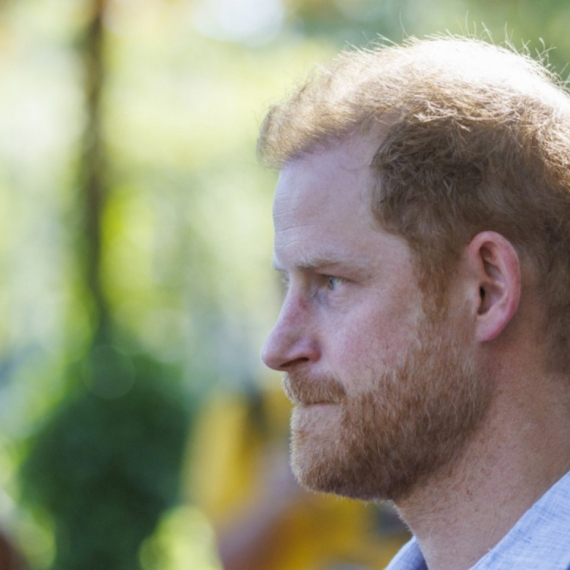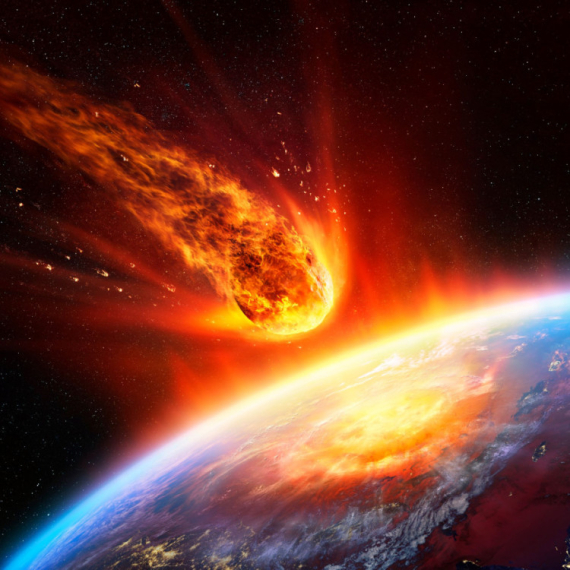Bush to meet Dalai Lama amid Chinese anger
U.S. President George Bush prepared to host talks with the Dalai Lama Tuesday.
Tuesday, 16.10.2007.
16:08

U.S. President George Bush prepared to host talks with the Dalai Lama Tuesday. The decision drew Chinese warnings that the high-profile visit could seriously undermine bilateral relations. Bush to meet Dalai Lama amid Chinese anger Bush is to meet the exiled Tibetan spiritual leader at his White House residence rather than the office, apparently to avoid the full wrath of China - a move that did not stop China from warning that the meeting would damage bilateral ties. "We express strong dissatisfaction and our firm opposition. This action will seriously undermine China-U.S. relations," foreign ministry spokesman Liu Jianchao said in Beijing on Tuesday. Beijing called on Bush to cancel the meeting. "We have already made many representations to the American side and we would like to again prompt the American side to correct the mistakes and to cancel the arrangements," the spokesman said. It is the third encounter between the US president and the 72-year-old religious figure, who China considers a dangerous separatist, since Bush took office in January 2001, U.S. officials said. Bush is also scheduled to attend a ceremony at the U..S Capitol on Wednesday, where the Dalai Lama is to receive the Congressional Gold Medal, a top U.S. civilian award. It will be the first time a sitting U.S. president will appear in public with the Dalai Lama, whose arrival in Washington Monday was greeted by a crowd of Tibetans clad in traditional dress, honoring the spiritual icon with blessings, songs and dances. Beijing has protested over the Congressional award, which it said "seriously interfered in China's internal affairs and damaged China-U.S. relations." Moving swiftly to show its displeasure, China sought postponement of a meeting - coincidentally also scheduled Wednesday - among top officials from the five UN Security Council permanent members and Germany in Berlin aimed at discussing the Iranian nuclear crisis, a U.S. State Department official said. "I think they (the Chinese) had indigestion ... over the presence of certain spiritual leaders and an event in Congress," said the official, speaking on condition of anonymity. "It is extraneous to Iranian issues." Beijing "just decided that Wednesday is not the date to have that meeting" among diplomats from Britain, China, France, Russia, the United States and Germany, the official said. "For us, the Dalai Lama is a spiritual leader and that is how he is being treated here," added the official. The six powers were to have discussed calls to tighten UN sanctions on Iran over its nuclear program. China and Russia have been against harsh Security Council sanctions on Iran, which has refused to abide by the powerful world's body's order to the Islamic republic to suspend uranium enrichment. Tehran insists its atomic drive is entirely peaceful and solely aimed at generating energy. Beijing's fury over the Dalai Lama's U.S. trip came barely a month after it strongly protested German Chancellor Angela Merkel's historic meeting with the spiritual leader in Berlin. China pulled out of a Germany-China symposium last month in Munich and axed an annual event scheduled for December in Beijing to discuss human rights. The Dalai Lama, the 1989 Nobel Peace Prize winner, also met Austrian Chancellor Alfred Gusenbauer last month and Australian Prime Minister John Howard in June. He will meet Canadian Prime Minister Stephen Harper this month. Bush has asked Chinese leaders to have a dialogue with the Dalai Lama to resolve the longstanding issue but they have not budged. "We hope President Bush's meeting with the Dalai Lama will send a clear message to the Chinese government to reach out to the Dalai Lama, who is acknowledged as a great man of peace, rather than shutting him out," said Kate Saunders, spokeswoman for the International Campaign for Tibet. China has ruled Tibet since sending troops in to "liberate" the Himalayan region in 1950. The Dalai Lama fled to India following a failed uprising in 1959 after Beijing crushed the revolt in Lhasa, and currently lives in the northern hill town of Dharamsala, which is also the seat of his government in exile. Beijing considers the Dalai Lama a political exile bent on establishing an independent Tibet, an accusation he has repeatedly denied. He instead says he only wants greater autonomy and is waging a non-violent campaign for greater rights for his six million people.
Bush to meet Dalai Lama amid Chinese anger
Bush is to meet the exiled Tibetan spiritual leader at his White House residence rather than the office, apparently to avoid the full wrath of China - a move that did not stop China from warning that the meeting would damage bilateral ties."We express strong dissatisfaction and our firm opposition. This action will seriously undermine China-U.S. relations," foreign ministry spokesman Liu Jianchao said in Beijing on Tuesday.
Beijing called on Bush to cancel the meeting.
"We have already made many representations to the American side and we would like to again prompt the American side to correct the mistakes and to cancel the arrangements," the spokesman said.
It is the third encounter between the US president and the 72-year-old religious figure, who China considers a dangerous separatist, since Bush took office in January 2001, U.S. officials said.
Bush is also scheduled to attend a ceremony at the U..S Capitol on Wednesday, where the Dalai Lama is to receive the Congressional Gold Medal, a top U.S. civilian award.
It will be the first time a sitting U.S. president will appear in public with the Dalai Lama, whose arrival in Washington Monday was greeted by a crowd of Tibetans clad in traditional dress, honoring the spiritual icon with blessings, songs and dances.
Beijing has protested over the Congressional award, which it said "seriously interfered in China's internal affairs and damaged China-U.S. relations."
Moving swiftly to show its displeasure, China sought postponement of a meeting - coincidentally also scheduled Wednesday - among top officials from the five UN Security Council permanent members and Germany in Berlin aimed at discussing the Iranian nuclear crisis, a U.S. State Department official said.
"I think they (the Chinese) had indigestion ... over the presence of certain spiritual leaders and an event in Congress," said the official, speaking on condition of anonymity. "It is extraneous to Iranian issues."
Beijing "just decided that Wednesday is not the date to have that meeting" among diplomats from Britain, China, France, Russia, the United States and Germany, the official said.
"For us, the Dalai Lama is a spiritual leader and that is how he is being treated here," added the official.
The six powers were to have discussed calls to tighten UN sanctions on Iran over its nuclear program.
China and Russia have been against harsh Security Council sanctions on Iran, which has refused to abide by the powerful world's body's order to the Islamic republic to suspend uranium enrichment.
Tehran insists its atomic drive is entirely peaceful and solely aimed at generating energy.
Beijing's fury over the Dalai Lama's U.S. trip came barely a month after it strongly protested German Chancellor Angela Merkel's historic meeting with the spiritual leader in Berlin.
China pulled out of a Germany-China symposium last month in Munich and axed an annual event scheduled for December in Beijing to discuss human rights.
The Dalai Lama, the 1989 Nobel Peace Prize winner, also met Austrian Chancellor Alfred Gusenbauer last month and Australian Prime Minister John Howard in June. He will meet Canadian Prime Minister Stephen Harper this month.
Bush has asked Chinese leaders to have a dialogue with the Dalai Lama to resolve the longstanding issue but they have not budged.
"We hope President Bush's meeting with the Dalai Lama will send a clear message to the Chinese government to reach out to the Dalai Lama, who is acknowledged as a great man of peace, rather than shutting him out," said Kate Saunders, spokeswoman for the International Campaign for Tibet.
China has ruled Tibet since sending troops in to "liberate" the Himalayan region in 1950.
The Dalai Lama fled to India following a failed uprising in 1959 after Beijing crushed the revolt in Lhasa, and currently lives in the northern hill town of Dharamsala, which is also the seat of his government in exile.
Beijing considers the Dalai Lama a political exile bent on establishing an independent Tibet, an accusation he has repeatedly denied.
He instead says he only wants greater autonomy and is waging a non-violent campaign for greater rights for his six million people.
























Komentari 2
Pogledaj komentare